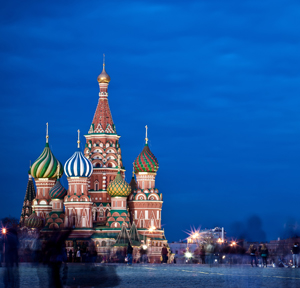Investment Strategies
Russia Isn't Loved But The Outlook Is Bright, Says Invesco Perpetual

Russia’s investment market deserves more respect than it gets, judging by cheap equity valuations, because the economy is proving more buoyant than expected and a likely expansion of its middle class will boost a number of sectors, argues Invesco Perpetual.
According to various measures, Russian equities trade on a forward price-earnings ratio of as low as five times forecast earnings. Markets have been spooked by concerns about the hard-line regime of Vladimir Putin, current prime minister and former president of the country.
“Valuation levels for Russian equities are extremely low right now in historical terms. They remain at a discount to other emerging markets as well as the developed world. There is a growing dividend culture in the region and there are some significant buyback programmes underway across the region. We believe that the current valuation levels of the asset class do not reflect the strong fundamentals or the multi-year growth opportunities that they present,” says Liesbeth Rubinstein, fund manager, emerging markets at Invesco Perpetual, in a note.
A number of positive developments make Russian markets look highly attractive, Rubinstein said. After 19 years of talks, Russia joined the World Trade Organisation in August, paving the way for lower trade barriers, boosting gross domestic product, wages and household income.
A mix of private and government investment in areas such as Russia’s key energy sector will have positive effects, she said. “We believe that this should result in real wage growth and a larger middle class. Furthermore, providing sufficient investment resources to other areas of the economy, for example, infrastructure renewal, should also aid efforts to diversify and modernise the economy,” said Rubinstein.
“We believe that if resource prices do not materially weaken, this rich mixture of government spending and private capital can help fuel a virtuous circle of higher economic growth and greater affluence. Russia’s production of resources is expected to be fairly steady for the foreseeable future,” Rubinstein continued.
Meanwhile, headline economic growth will be bolstered by rising nominal and real wages, Rubinstein said, citing research from Merrill Lynch predicting that the number of affluent Russians will increase from the existing 20 million figure to more than 66 million by 2020.
“The knock-on effect of this positive trend is that it should provide investment opportunities in areas such as modern format retail, consumer goods, financial services and the development of the healthcare system,” she added.
